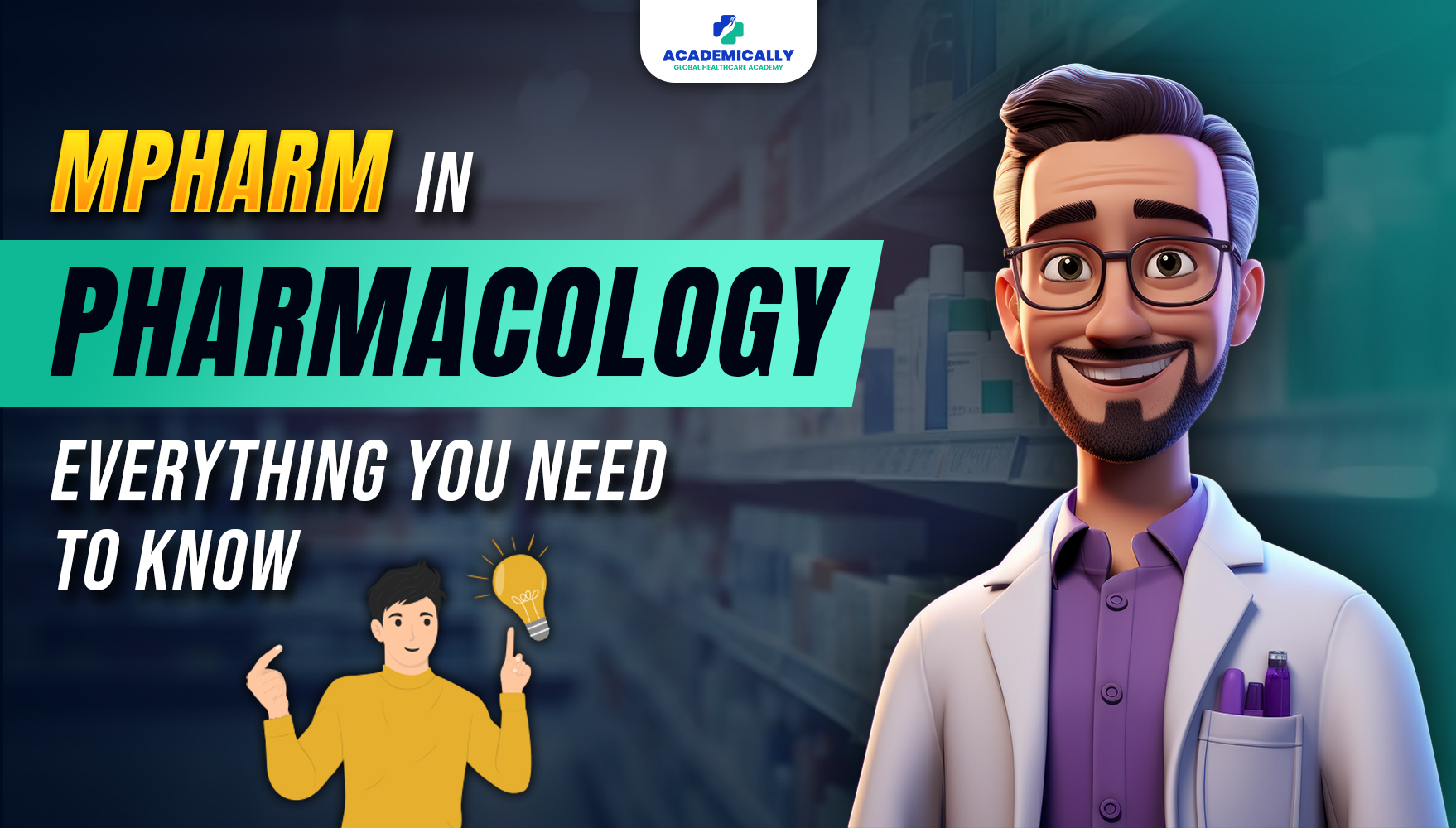Why Pursue an MPharm in Pharmacology?
Pharmacology is the study of drug interaction with human biological systems. It explores the mechanisms of action of drugs and their effects on the body. It is a great course for students and professionals who want to learn the science behind medications. Here are a few reasons why this is a great career choice for you-
- Insights into bodily mechanisms- Pharmacology teaches the working of drugs at a molecular level. From neurotransmitters to the brain to enzymes in cells, it discusses the mechanisms that drive and influence health and disease.
- Impact on patient care- Drug development is a crucial process for patient care. Graduates of this course can contribute in the development of new therapies and optimise existing treatments.
- Career opportunities- After completing your MPharm in Pharmacology, you can work in pharmaceutical companies as well as research institutions. Several roles can open up for you in the government as well as the private sector. You can also work in regulatory agencies, hospitals, academia, or even executive roles focusing on healthcare policy creation and management.
- Research and Growth- Pharmacology is a constantly evolving field where you come across cutting-edge research and tackle problems to lead advancements in the pharmaceutical field.
About the Course
Generally, an MPharm in Pharmacology is a 2-year degree program. You can pursue it after completing your BPharm from a recognised university. The subjects covered in an MPharm program are-
- Modern Pharmaceutical Analytical Techniques
- Pharmacological & Toxicological Screening Methods
- Cellular & Molecular Pharmacology
- Principles of Drug Discovery
- Clinical Research & Pharmacovigilance
- Experimental Pharmacology
- Advanced Pharmacology
Most Colleges across the country offer this course. The admission for this course is done through the Graduate Pharmacy Aptitude Test, commonly known as GPAT.
M.Pharm in Pharmacology is a much sought after course. It is generally one of the first courses to be filled. Candidates need high ranks to get into this course.
Prepare for the GPAT exam with Academically and ensure your success at getting your dream course.
Register Now
MPharm in Pharmacology: Top Colleges
Top Colleges in India
Here’s a list of the top MPharm in Pharmacology colleges in India and some important details about their courses.
| Rank | College / Institute | Location |
| 1 | Jamia Hamdard University | New Delhi |
| 2 | Panjab University (PU) | Chandigarh |
| 3 | Institute of Chemical Technology (ICT Mumbai) | Mumbai |
| 4 | BITS Pilani (Pilani Campus) | Pilani, Rajasthan |
| 5 | JSS Academy of Higher Education & Research | Mysore, Karnataka |
Top Colleges Around the World
| S.No | Institution | Country |
| 1 | University of Mississippi | U.S.A |
| 2 | University of London, School Of Pharmacy | U.K |
| 3 | McGill University | Canada |
| 4 | University of Bristol | UK |
| 5 | University of Montreal | Canada |
Scope of MPharm in Pharmacology
Some of the most common career paths after completing MPharm in Pharmacology include the following-
Research and Development
If moving to the field of pharmacy research is your goal, you can do it after this course. Pharmacology scientists work to discover new drugs and conduct clinical trials. They ensure the safety and efficacy of pharmaceutical products.
Job options include-
- Research Associate
- Research Scientist
- Project Manager (R&D)
- Academic Researcher
- Pharmacologists
- Toxicologist
Pharmaceutical Production, and Manufacturing
After your Pharmacology Master's, you can acquire entrepreneurial and managerial skills. Professionals have the tasks of ensuring the quality and efficiency of drug manufacturing in pharmaceutical companies.
Job roles include-
- Production Officer
- Production Chemist
- Production Manager
- Assistant Manager Production
- Plant Manager
Analysis and Testing
To ensure the safety and effectiveness of medicinal drugs, professionals are assigned the tasks of analysis and testing. In such roles, you will be asked to conduct quality assurance tests and ensure compliance.
Job options include-
- Quality Assurance Assistant
- Quality Assurance Officer
- Regulatory Affairs Officer
- Clinical Quality Assurance Manager
Sales and Marketing
A very famous role acquired by most MPharm in Pharmacology graduates in India is that of sales and/or marketing. The job expects professionals to market and sell drugs to healthcare professionals and consumers.
Job options include-
- Marketing Manager
- Sales Executive
- Marketing Representative
- Sales Representative
Academia or Writing
Another great option after getting your masters in Pharmacology is academia. Becoming a professor or lecturer is a way to keep in touch with the academic side of the subject. This also involves research activities.
Apart from this, being a medical writer is another lucrative career option. As a medical writer, you can work for:
- Pharmaceutical companies
- Contract research organizations
- Medical communication agencies
In this role, you will prepare, among other things,:
- Scientific documents
- Scientific manuscripts
- Clinical study reports
Also Read: Pharmacist Salary in Ireland
A Promising Alternatives to M.Pharm Pharmacology
Pharmacologists are one of the most important members of the pharmacy sector. But is completing an M.Pharm degree the only way to get into this profession?
The answer is no. The pharmacology sector in India, although developed, still lags behind compared to countries such as Australia, Canada and the UK.
This can be because the focus is more on drug manufacture than drug discovery.
If you have your heart set on actual exploration of the world of pharmacology, you can start with practicing pharmacy abroad.
With only an assessment exam in the way, you can start your journey working abroad. What better way to learn the impact of drugs in the body than by working with patients?
Academically provides not only counsel on this journey across the sea, but also preparation courses for the various pharmacist assessment exams, like;
- OPRA- Australia
- DHA- Dubai
- PSI- Ireland
- PEBC- Canada
And many more.
Book a session now and explore all your options.
Conclusion
Adding an MPharm in Pharmacology degree to your resume is a career booster. You have the opportunity to better lives and enhance healthcare. . If you are passionate about pharmacology, believe that an MPharm in Pharmacology can be the right career move for you!
A noble profession, masters in pharmacology has yet to reach its potential in the industry. With more emphasis on drug production and analysis, pharmacologists are sadly underutilized.
The alternative to a Master's in Pharmacy is to start a career abroad. Here is when Academically comes in.
With over a decade of expertise in helping medical professionals worldwide, Academically is your solution for an overseas career.
From exam preparation courses to immigration guidance, we cover it all.
Reach out to our team to learn more about opportunities in the pharmaceutical world after graduation and post-graduation.






